Granny Must Die Review: A Dark Comedy About Caregiving and Family Tension
A bittersweet dark comedy about caregiving, resentment, and the strange tenderness buried in family life.
Granny Must Die Review: A Dark Comedy About Caregiving and Family Tension

There is a moment in Granny Must Die where a girl gently smothers her grandmother with a pillow, pauses, and smiles. Then the credits roll. Then the grandmother wakes up.
Directed by Chen Yi-Jung, the film opens with this dreamlike murder that sets the tone: unsettling, theatrical, and deeply human. We follow Huichiao (Tammy Lin), a young woman stuck in a Taipei apartment with her unpredictable grandmother Chunmei (Yang Li-Yin), her emotionally absent father Fusang (Chen Yi-Wen), and a mother who has emotionally checked out (Milia Luo). The family dynamics are exhausting, shaped by unspoken resentments and generational tension. Huichiao’s only escape is her flirtation with a co-worker, A-Jie (played with quiet charm by Joseph Huang), whose presence slowly unravels even more family secrets.
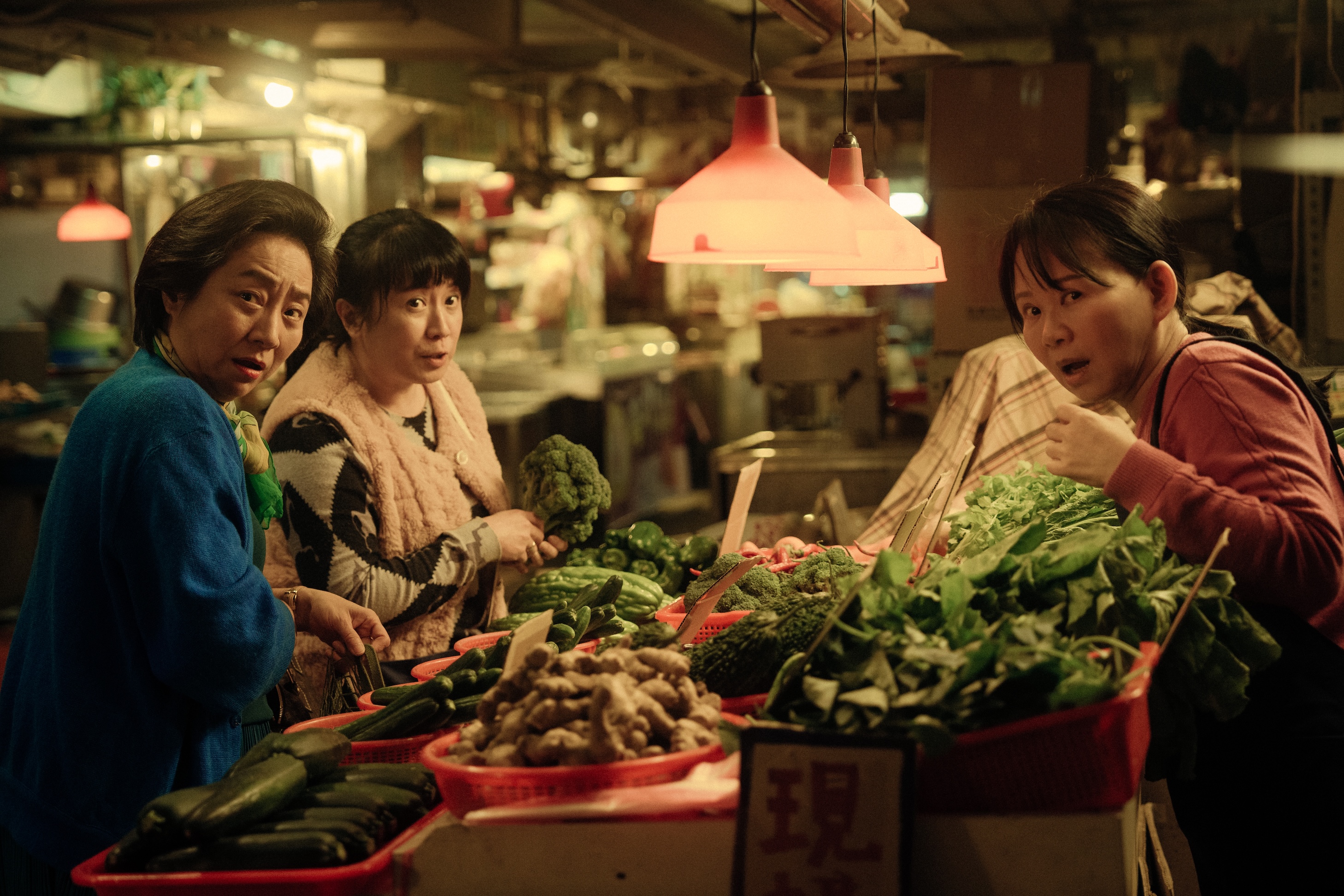
This is not a domestic drama in the traditional sense. Chen, who studied in Paris, draws visual references from European cinema, Hakka rituals, and her own lived experience. She fills the film with exaggerated colour, sudden cutaways, and moments where characters speak directly to the audience. There are touches of Amélie, echoes of Frida Kahlo, and a hint of The Shining. One scene shows the grandmother and granddaughter mirrored on a bed, hands touching, a visual homage to The Two Fridas. None of it feels forced. In Chen’s hands, memory and imagination drift into each other in a way that feels real.
Watching the film, I found myself smiling in that quiet, aching way that only comes when something funny is also painfully true. What stands out most is the humour. Chunmei is not just forgetful. She is chaos. She steals watches, misdelivers mail, and tries to free Huichiao’s pet hamster, Sweet Potato. The absurdity works because it is grounded in sadness. When Huichiao yells, "Granny, just die," it is not a wish for death. It is a plea for space. For silence. For a moment without pressure.
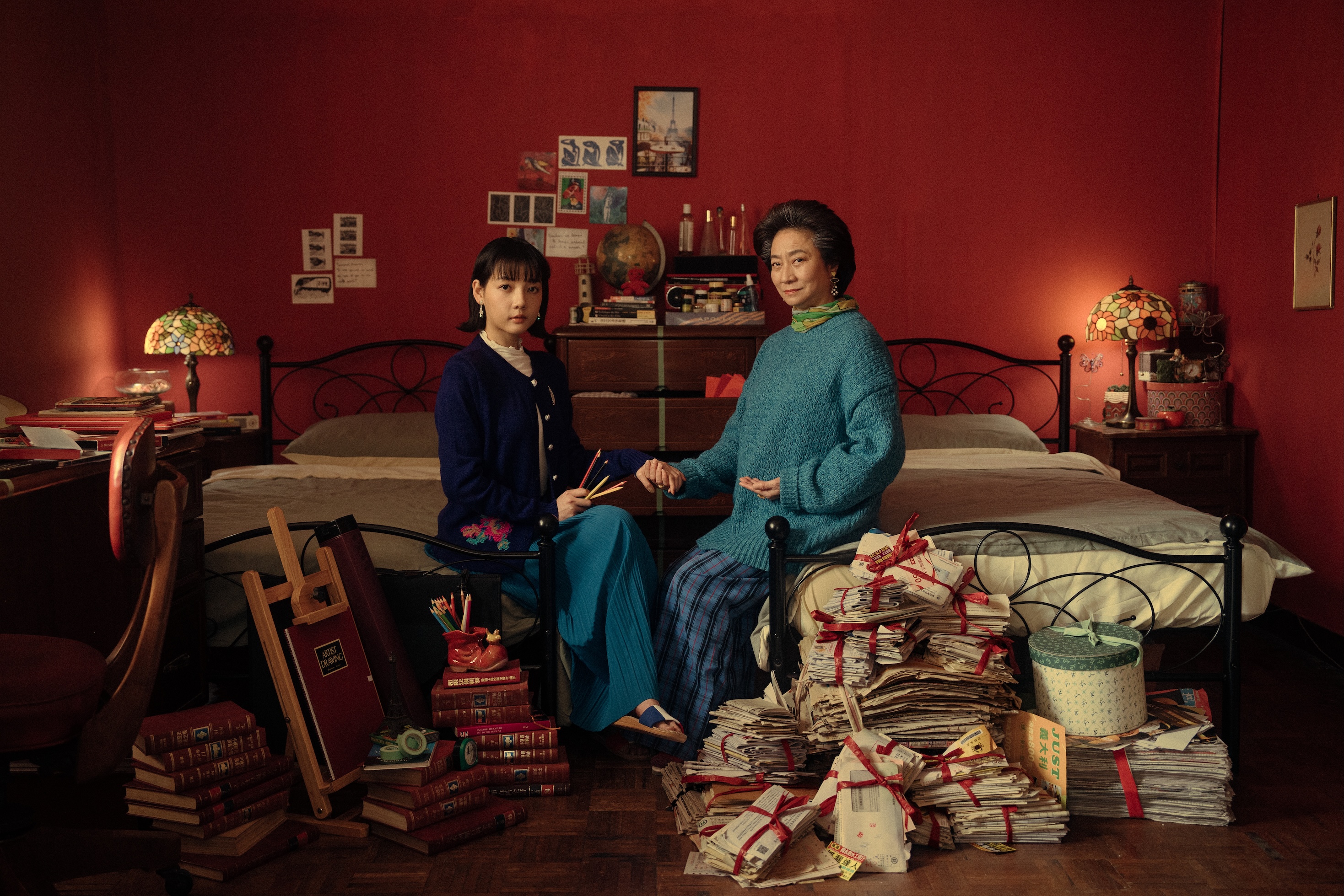
The film was produced by Keng-Ming Chang and commissioned by Hakka TV, featuring a full creative team of Shih-Wen Liu (cinematography), Shing-Fung Yu (editing), Chi-Yang Hsu (original music), and Shan-Jyun Li (art direction). Screenwriters Joy Tsai and Milia Luo, alongside Chang, shape a script that captures Taiwanese family life in ways that are both layered and painfully familiar. The use of the Hakka language deepens the emotional texture and roots the story in a culture that values ancestry, structure, and sacrifice. It was also nominated for three awards at the 2025 Raindance Film Festival, including Best International Feature, the Discovery Award for Debut Feature, and Best Performance in a Debut Feature for Yang Li-Yin.
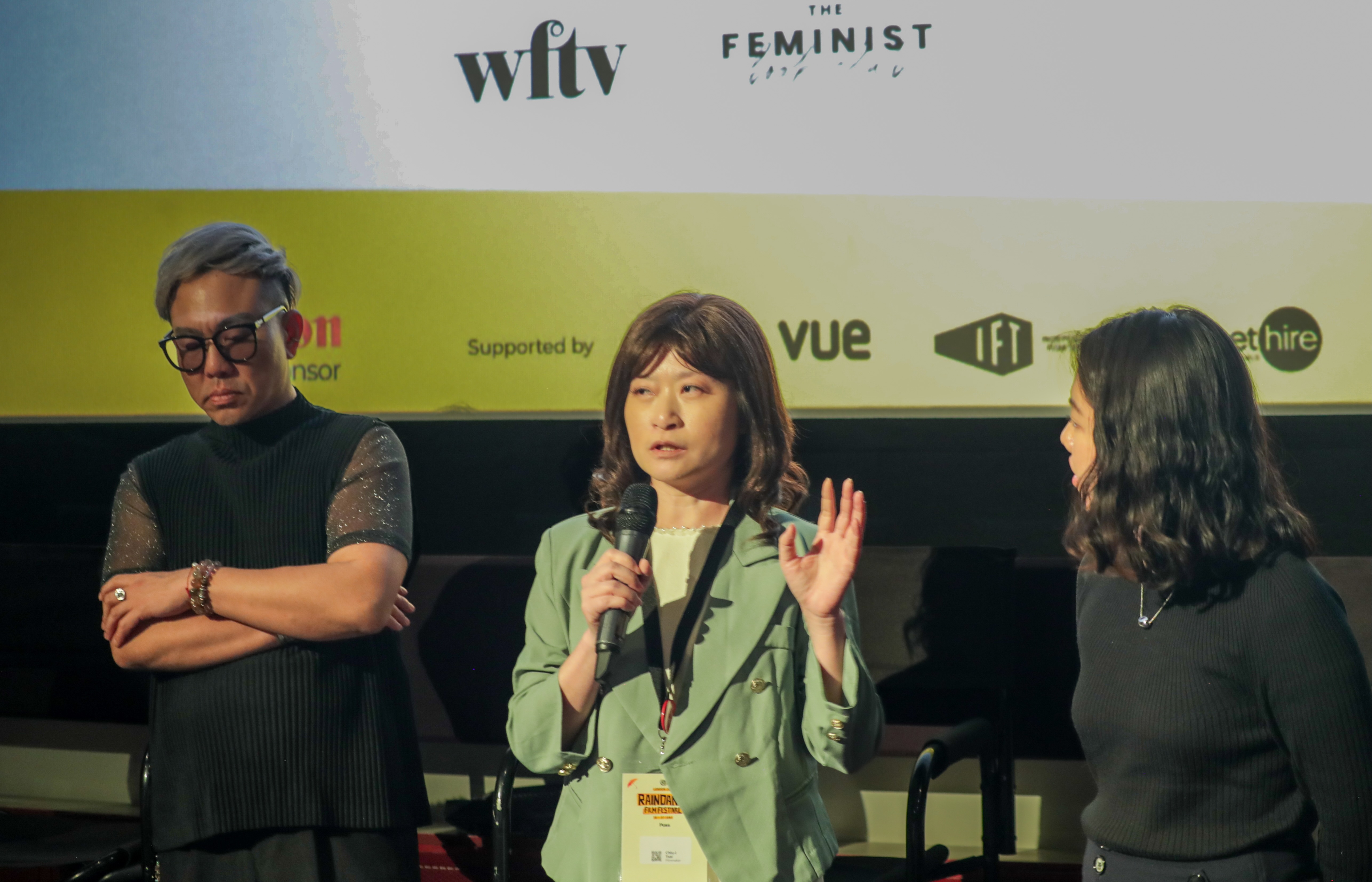
At the Raindance Film Festival, Chen and producer Rocco spoke about where the story came from. It began with a family argument about elder care. Chen’s uncle insisted he could not take in their aging mother because his building did not have an elevator. That was the reason. So the grandmother moved in with Chen instead. She gave up her room and slept in a storage space. That absurd, specific moment became the core of the film.

Rocco added that caring for elders is often a long, complicated love. In many Taiwanese households, grandparents live with the family for decades. He described how resentment builds slowly, not because you do not love them, but because the care never ends. It becomes your life.
Chen originally wrote the film in anger. Over time, it changed. “At first I wanted the grandmother to die,” she admitted. “But after five years of writing, I saw her differently. So she lived.”
In a podcast recorded after the film screened at LNY Splash in Vancouver, Chen opened up about that change. She spoke about dementia, about the difficulty of portraying it, and about why she chose not to make a serious psychological drama. “I wanted it to be vivid. I wanted it to feel like what living in that situation actually feels like,” she said. Her years in Paris shaped that vision, from the saturated colour palette to the film’s surreal rhythm and dreamlike pacing.
The team also addressed language and cultural identity. Making the film in Hakka was a creative challenge, especially for lead actress Yang Li-Yin who learned it for the role. But the choice brought the story closer to its roots. The film includes small, precise details from Hakka culture, from family altars to the unspoken hierarchy in multigenerational homes.
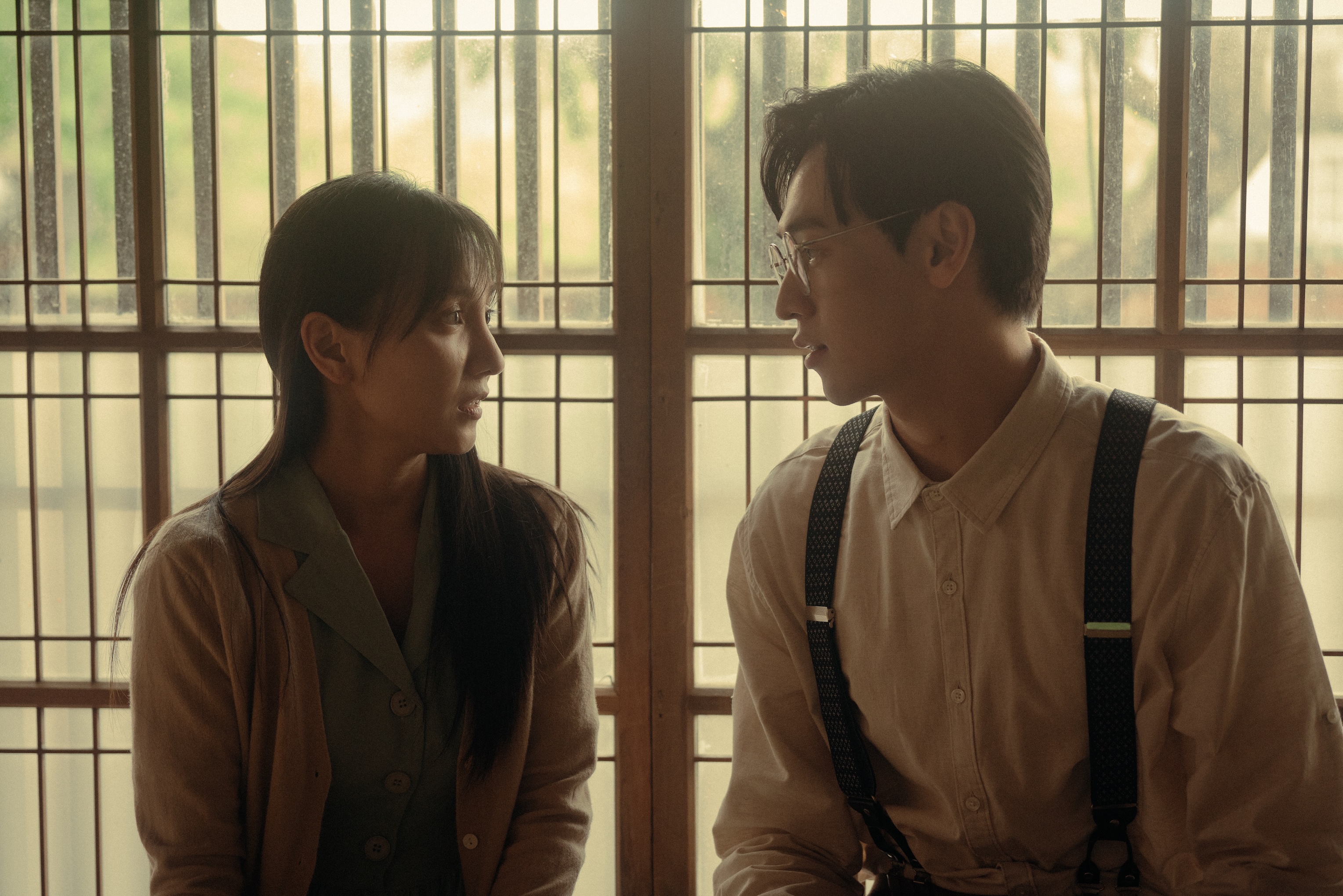
Even the pet hamster, Sweet Potato, carries a quiet weight. “I always had pets,” Chen said. “And I liked that something small and soft could become a symbol for something bigger. It looks like a sweet potato. It just fit.”
Granny Must Die is not a sentimental film. It does not ask for pity. It makes space for resentment, for guilt, and for small moments of forgiveness. It understands that sometimes, to keep going, we have to laugh. Not because it is easy, but because it is true.

This article is based on two extended conversations with the team behind Granny Must Die. The first was a post-screening Q&A at the 2025 Raindance Film Festival in London, with director Chen Yi-Jung and producer Rocco. The second was a podcast interview recorded during LNY Splash in Vancouver. Across both, they spoke about family, memory, and caregiving. They shared the origins of the script, the realities behind each scene, and why humour became the most honest way to survive it all. What began as a furious fantasy slowly turned into something more reflective. Not sentimental. Just human.

Get weekly updates
.png)
Join Our Newsletter
Get a weekly selection of curated articles from our editorial team.

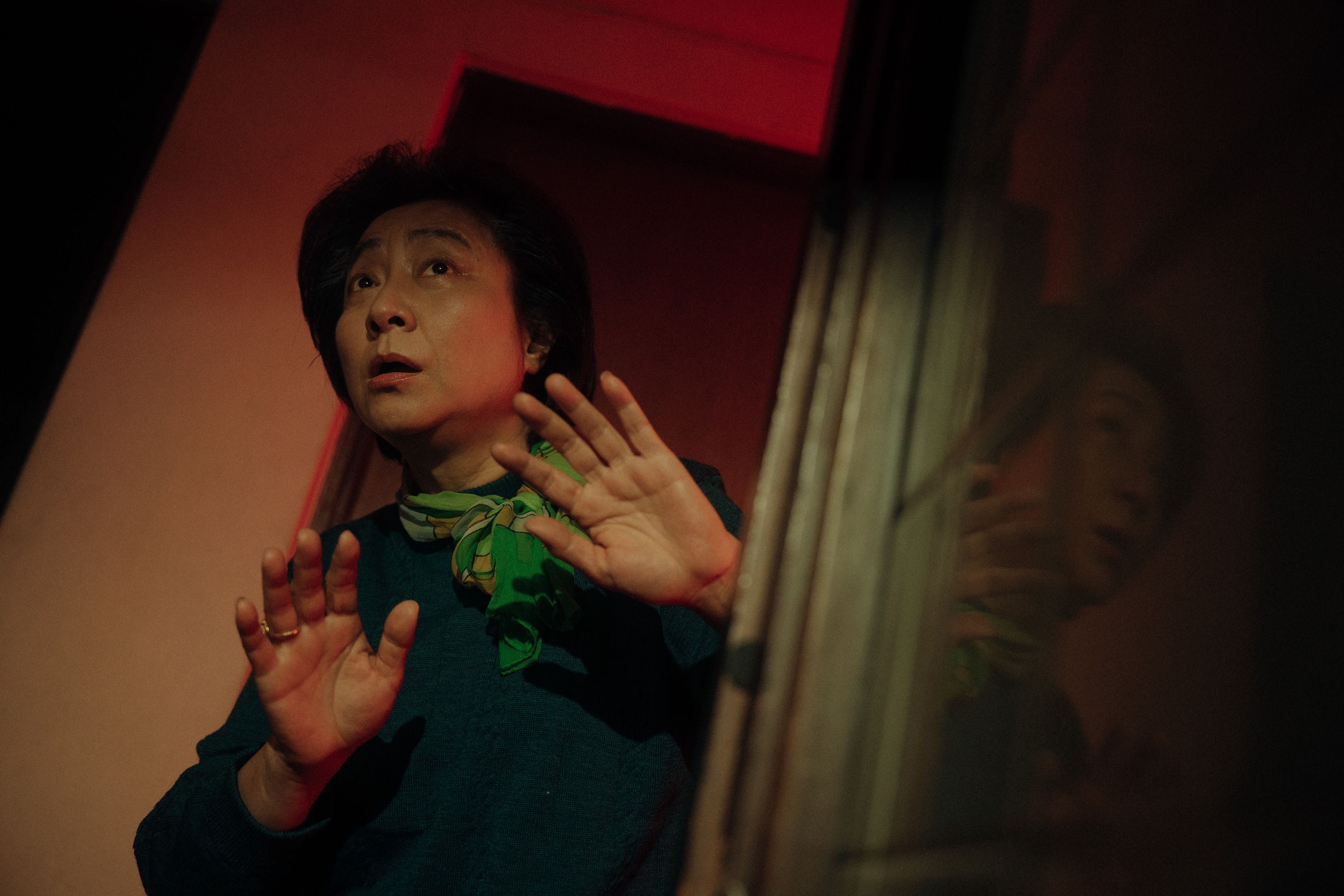



.svg)











